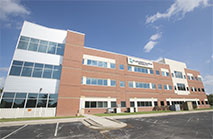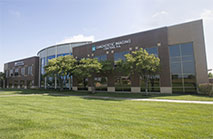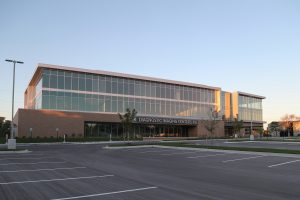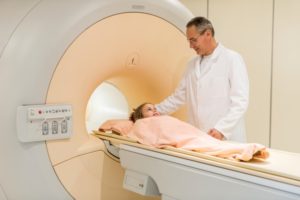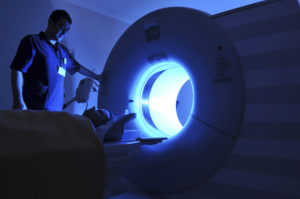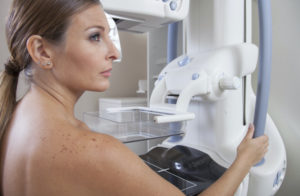Breast Cancer Awareness Month: The Story of Eve
 One cold December day, I sat with my patient – let’s call her Eve – and found the words “we failed her” running circles around my thoughts. Not a few moments before, her mammogram came to light on the screen in my dark room and I saw our failure, plain as could be: she had breast cancer. After hearing her story, I was painfully aware that we as a medical community, as friends and family, as fellow women and warriors had failed her.
One cold December day, I sat with my patient – let’s call her Eve – and found the words “we failed her” running circles around my thoughts. Not a few moments before, her mammogram came to light on the screen in my dark room and I saw our failure, plain as could be: she had breast cancer. After hearing her story, I was painfully aware that we as a medical community, as friends and family, as fellow women and warriors had failed her.
Hers was a cancer you could see from across the room. This was no subtle case requiring expert eyes or expert imaging. This was a large breast mass she could feel with her bare hands, nearly replacing her whole right breast. She had felt it for over 9 months, probably longer.
Why did Eve not immediately seek help when she first noticed something was wrong? What kept her from getting imaging earlier when the mass would have been more easily treated, less likely to have spread? Here’s where we failed: fear and lack of knowledge of resources in our community kept Eve from seeking the help that could have spared her the course she now faced in trying to save her life.
I think of Eve whenever October comes around – Breast Cancer Awareness Month. There’s so much information, so many lives touched, yet still not enough to change Eve’s course. There’s still not enough information out there to bring her to her doctor early, to let her know there are resources even when you feel there are none.
I vowed after I sat listening to her story and discussing her results that I would never take October for granted, would do everything in my power to make sure we don’t fail again. So let’s spread the news:
- Anyone can get breast cancer: if you have breasts, you are at risk.
- If you feel something in your breast and it stays around for a month, see your doctor – and don’t delay.
- Most lumps are NOT cancer – but there is no way to tell without getting it checked out!
- No family history, so feeling like screening is not for you? Remember 75% of women with breast cancer have no other risk than being female!
- What can help – our best defense against breast cancer is early detection:
- Early detection saves lives! Annual screening mammograms starting at age 40 if you are average risk and monthly self-exams starting at age 20 are key. Clinical breast exams starting at age 20 are also a key part in early detection as mammography does not catch all breast cancers.
- Knowing the signs and symptoms to look for is invaluable. Look of more than just lumps – skin changes such as puckering and nipple changes like inversion or change in color are important findings.
- If something seems wrong with how your breasts look or feel, have it checked out!
- Breast ultrasound and breast MRI may be additional imaging means of screening in some women, especially those with dense breasts and those with a history of breast or other cancers (ovarian and colon in particular) in their families.
- Resources are available!
- Friends and family can help get a frightened Eve to the doctor’s office through love, calm conversation, support and even going with her!
- Insurance is required to cover annual screening mammograms without cost to the woman.
- For the uninsured, there are programs provided by nonprofits. Do not let lack of insurance keep you from getting the care you need.
So this October in memory of Eve, we ask you to spread the news. Get your annual mammogram, see your doctor each year and do a monthly self breast examination. Spread the word to those women you know and love. As doctors who specialize in women’s health, we are in a position to know, to support, to DO SOMETHING and yet… we can always do more, and we won’t stop until there are no more who become like Eve…
Image credit: o hai! by harold.lloyd via Flickr Copyright Creative Commons Attribution-NonCommercial-ShareAlike 2.0 Generic (CC BY-NC-SA 2.0)
Originally published 10/28/14 on mammographykc.com.
